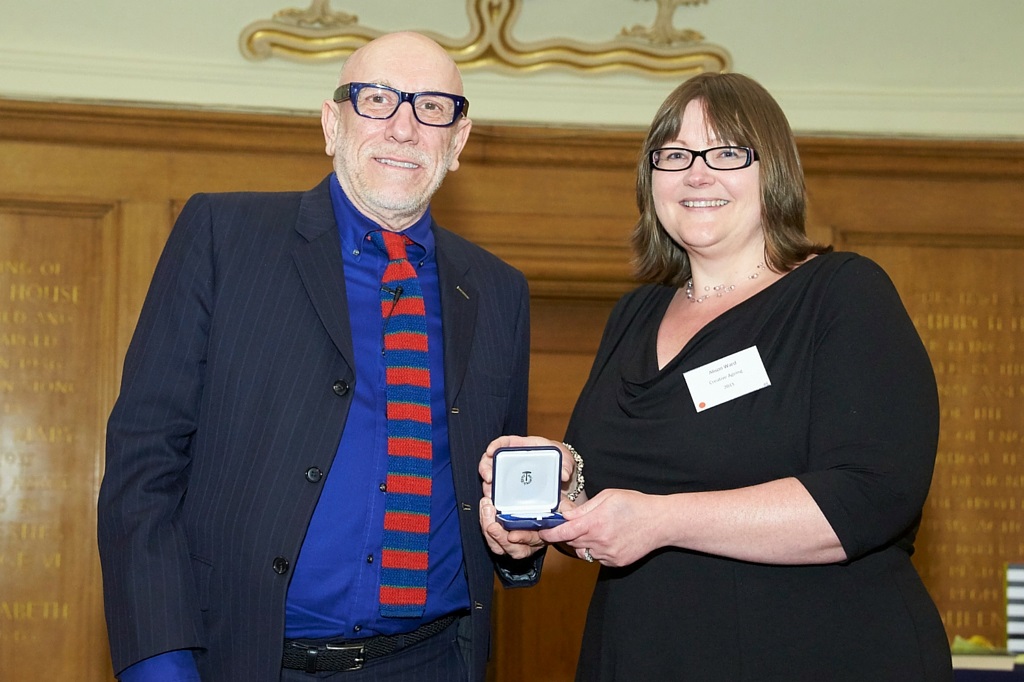University of Northampton researcher Alison Ward awarded prestigious Churchill Medallion at London awards ceremony
Date 14.06.2016

Alison Ward, a Researcher in the University of Northampton’s School of Health, has been awarded a newly designed Churchill medallion to recognise her successful completion of the Winston Churchill Travelling Fellowship.
Alison was presented with the stunning blue cloisonné enamelled silver Churchill medallion by Professor Brian Clarke, at an awards ceremony held at Church House in Central London. Professor Clarke is a world renowned architectural artist, and a 1974 Churchill Fellow himself.
In 2015, Alison was awarded £4,000 by the Winston Churchill Memorial Trust, which she used to travel to Denmark. She explained: “The award allowed me to travel to Denmark to explore the experiences of people living with early stage dementia, through the means of photography and storytelling.
“I was extremely proud and honoured to have received funding from the Winston Churchill Memorial Trust, and was very excited to be given the opportunity to spend time abroad, learning about different care settings for people with dementia and to bring that learning back to the UK to share with colleagues.”
Professor Brian Clarke praised all the Fellows for their outstanding achievements, and said that: “I know from personal experience that the Fellowship represents a wonderful opportunity. I am continually amazed and inspired by the Churchill Fellows dedication and commitment to making a difference in so many areas affecting today’s society.”
Before his death in 1965, Sir Winston Churchill was adamant that he did not wish to have another statue as his memorial, so he approved the setting up of The Winston Churchill Memorial Trust. The Trust is his national memorial and living legacy, and it aims to benefit future generations. To commemorate its 50th anniversary year, the Trust awarded 150 Travelling Fellowships in 2015, available for individuals to visit different parts of the world in pursuit of new and better ways of tackling a wide range of social, environmental, medical and scientific issues.
A report from Alison’s trip is available online here.